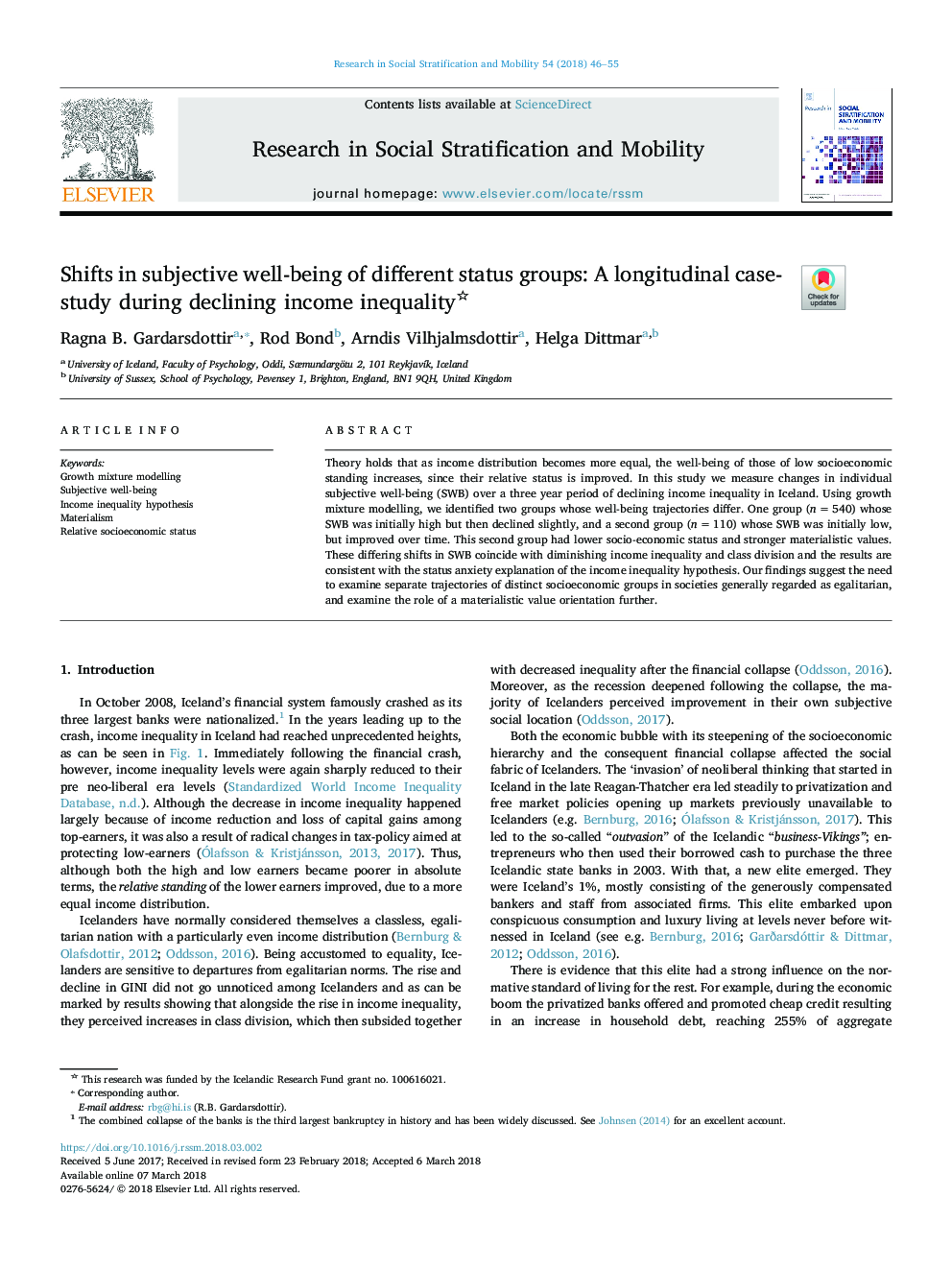| Article ID | Journal | Published Year | Pages | File Type |
|---|---|---|---|---|
| 7409899 | Research in Social Stratification and Mobility | 2018 | 10 Pages |
Abstract
Theory holds that as income distribution becomes more equal, the well-being of those of low socioeconomic standing increases, since their relative status is improved. In this study we measure changes in individual subjective well-being (SWB) over a three year period of declining income inequality in Iceland. Using growth mixture modelling, we identified two groups whose well-being trajectories differ. One group (nâ¯=â¯540) whose SWB was initially high but then declined slightly, and a second group (nâ¯=â¯110) whose SWB was initially low, but improved over time. This second group had lower socio-economic status and stronger materialistic values. These differing shifts in SWB coincide with diminishing income inequality and class division and the results are consistent with the status anxiety explanation of the income inequality hypothesis. Our findings suggest the need to examine separate trajectories of distinct socioeconomic groups in societies generally regarded as egalitarian, and examine the role of a materialistic value orientation further.
Related Topics
Social Sciences and Humanities
Economics, Econometrics and Finance
Economics, Econometrics and Finance (General)
Authors
Ragna B. Gardarsdottir, Rod Bond, Arndis Vilhjalmsdottir, Helga Dittmar,
